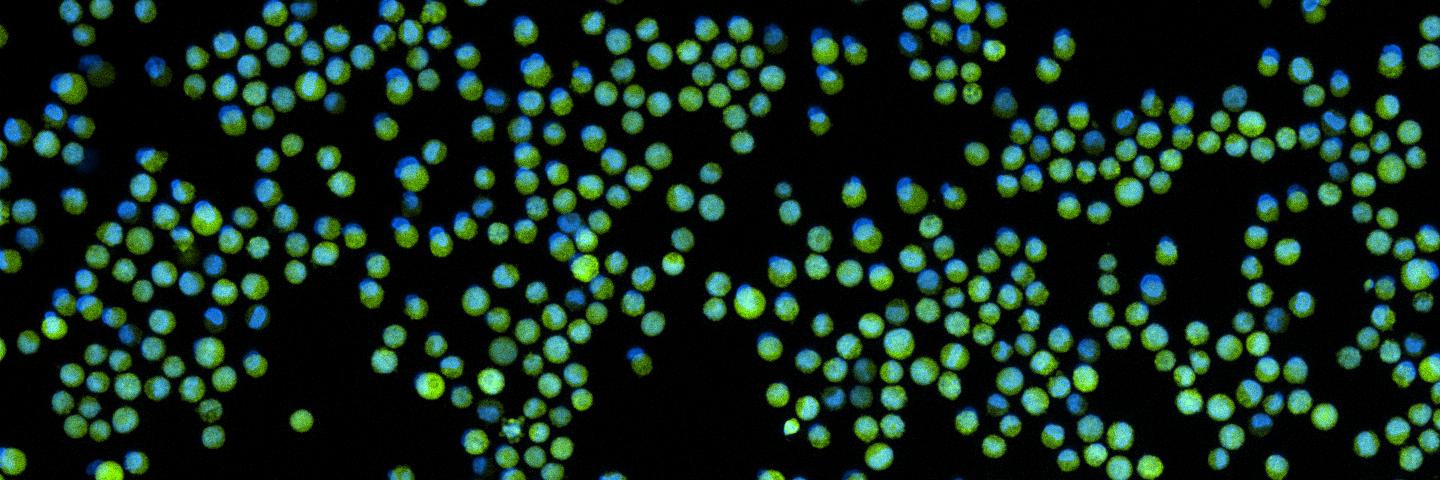
How ATCC STR authentication works
Verifying the identify and purity of your human cell lines is essential to the integrity of your research. We provide that vital information through our FTA Sample Collection Kit for Human Cell Authentication Service.
Our human cell authentication assay identifies short tandem repeat (STR) markers—tiny repeating segments of DNA found between genes—at specific loci to establish a DNA fingerprint for every human cell line. We use multiplex polymerase chain reaction (PCR) to simultaneously amplify the amelogenin gene and 17 of the most informative polymorphic markers in the human genome. The pattern of repeats results in a unique STR identity profile for each cell line analyzed. We perform STR profiling following ISO 9001 and ISO/IEC 17025 quality standards.
STR profile analysis is performed under Cell Authentication: Standardization of Short Tandem Repeat Profiling, ASN-0002-2022, using ATCC's internal database and Expasy's database.
Cell authentication is a funding and publication requirement
Routine testing of cell cultures is critical as cell lines frequently undergo misidentification, cross-contamination, and genetic drift.1, 2 Cell authentication is also now required by the National Institutes of Health for grant funding and by a number of scientific journals, and the Food and Drug Administration requires validation of all materials included in investigational new drug (IND) applications.
Cell authentication guidelines
Test your cell lines:
- When you receive a cell line into the laboratory
- After 10 passages
- After preparing a cell bank
- When in doubt
Learn about cell authentication and ATCC STR analysis in two minutes
ATCC human cell STR profiling in three easy steps
We’ve designed our human cell authentication service with STR analysis to be simple, fast, and affordable. We provide a pre-addressed envelope with a submission form and instructions. You can submit your cells for testing in three steps:
- Place your order for our FTA Sample Collection Kit for Human Cell Authentication Service.
- Spot your cells on an easy-to-use Whatman FTA card once the kit arrives. The cards contain chemicals that lyse cells, denature proteins, and protect nucleic acids from nucleases, oxidative degradation, and UV damage.
- Mail the dried sample to ATCC for STR analysis.
Once we receive your sample collection kit, our scientists extract the spotted DNA from the FTA cards. You’ll receive a comprehensive report from ATCC scientists within 3 to 5 business days.
Get expert analysis and peace of mind
Your ATCC Cell Line Authentication Service STR Profile Report contains:
- An easy-to-understand STR allele table
- Electropherograms that support the allele calls at each locus
- A comprehensive interpretation of the results
- A comparison of the cell’s profile against the ATCC Human Cell STR Database
The report meets the requirements for National Institutes of Health funding, journal publication, and quality control for FDA submissions.
The ATCC difference: database comparison
Unlike other providers, we authenticate cell lines by comparing the STR profile of sample cell lines with the ATCC Human Cell STR Database. If your cell lines are not from ATCC, we can still conduct a comprehensive interpretation of results. If no matching profile is found in the ATCC STR database, we check for matches in the Expasy database. The results are confidential.
The ATCC difference: raw STR data analysis
Basic authentication requirements include a signed STR profile report showing the loci and qualified allele calls from an electropherogram which establishes the identity of the cells. The advantage of a signed report from ATCC is that our STR scientists are fully trained to analyze and report on raw STR data. Their analysis includes, but is not limited to, interpretation of stutter, off-ladder alleles, and various artifacts.
Or order individual kits and receive these discounts
| Quantity | Discount |
|---|---|
| 0-5 | 0% |
| 6-10 | 10% |
| 11-19 | 15% |
| 20-29 | 20% |
| 30 or more | 25% |
What our customers say
“I have been using ATCC’s human STR service to validate cell lines that we use for high throughput screening. The process is so simple and streamlined, and the results are clear and easy to understand. We encourage all users of human cell lines to use this service to confirm their cell lines, especially ahead of publication.”
— Jaime Cheah, PhD
Director, High Throughput Sciences Facility, The Koch Institute for Integrative Cancer Research, Massachusetts Institute of Technology
“We use ATCC’s STR kit for all of our cell lines. The kit gives us confidence about our experiments since the authentication of cell lines is the basic foundation. Also, I really like how ATCC can search and report on cell lines from ATCC and other sources. This is a great help to us.”
— Yvonne Sun
Lab Manager, PMV Pharmaceuticals, Inc.
“It was easy to handle, because it was just counting cell numbers and then spotting it on FTA paper. It was also helpful as the results arrived earlier than I expected.
In our laboratory, we are strictly managing the passage of cell lines. This time, we checked whether the quality of the cell lines is certainly maintained by our management system that keeps them as low passage as possible, using the STR cell certification test kit (Two cell lines used: one is relatively new and the other is the one being used for a long time in our lab).
As a result, there was no cross contamination and both strains 100% matched, so we could confirm that our management system was working appropriately. From now on, I would like to perform STR analysis regularly to check the quality of cell lines in our lab.”
— Hiroaki Taniguchi, MD, PhD
Project Associate Professor, Center for Antibody and Vaccine Therapy, Research Hospital, The Institute of Medical Science, The University of Tokyo
1 Capes-Davis A, et al. Check your cultures! A list of cross-contaminated or misidentified cell lines. Int J Cancer. Jul 1;127:1:1-8, 2010.
2 ATCC, The role of ICLAC (International Cell Line Authentication Committee)